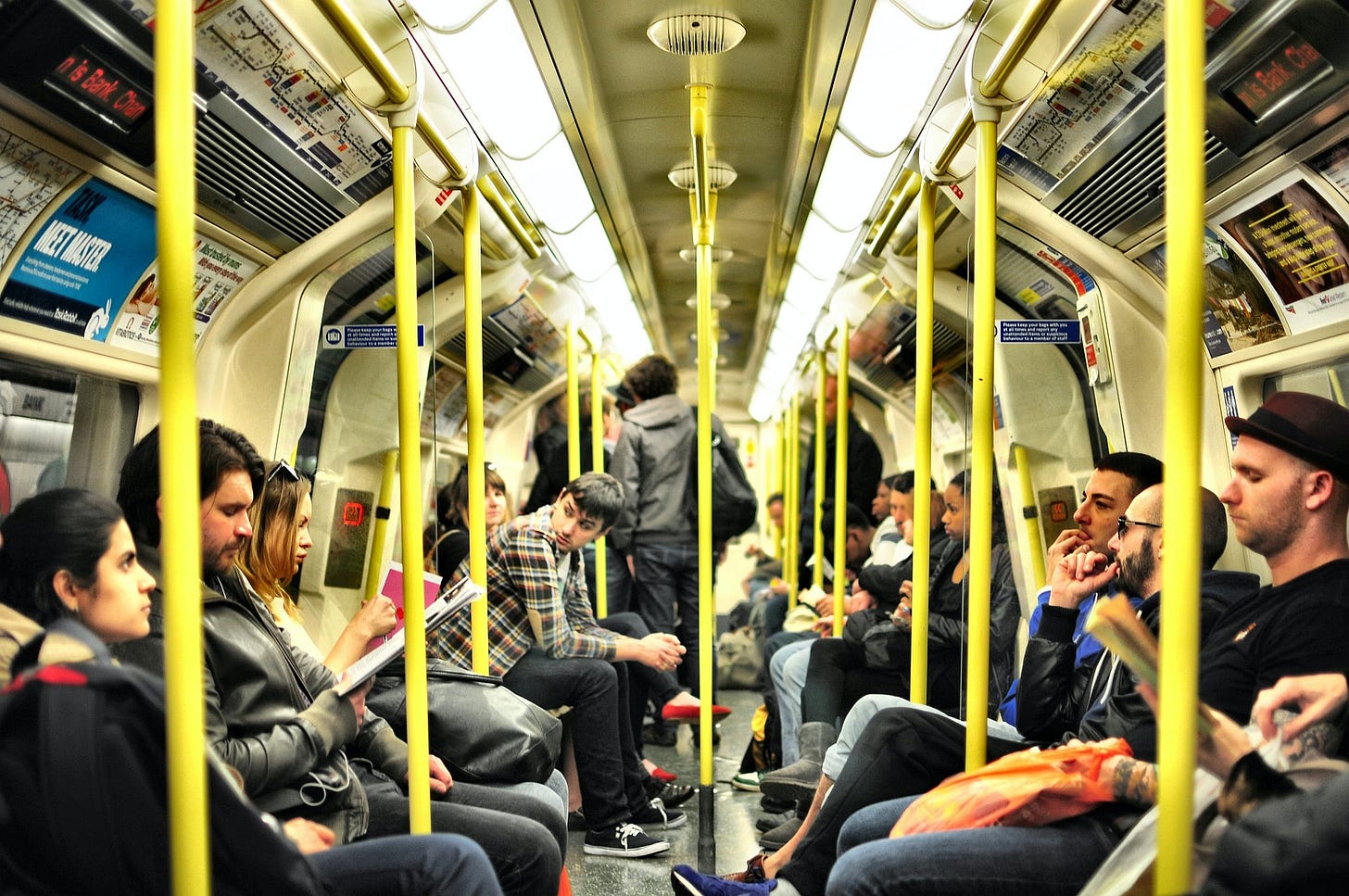The COVID lockdowns metamorphosed everyone into creatures like Gregor Samsa: having the conscious and perspectival experiences of a human being, but the outward appearance of a vermin – a pestilent vermin. We were confined to our rooms. If we ventured outside, most people responded with suspicion and terror. The supposed life-saving technologies did little to calm us, as our elected leaders encouraged segregation and the punishment of fabricated crimes. It was, as one of my students perceptively noted, pandemonic.
Social tension hasn’t dissipated: instead of a global health problem, many people are now worried about a global economic problem. The cost-of-living increases while real wages decrease. Unless you’re part of the zoomocracy, the laptop-and-governing class, renting is unaffordable and buying a house is impossible.
In 2020, and again in 2021, I predicted that something like this would happen, but I wasn’t prepared for the general increase in rudeness and vulgarity.

Sydneysiders are not exactly famous for their politeness – this is the city where the feel-good vegan restaurant that encouraged you to “pay what you want” turned out to be taking the same approach with its staff – but even I am surprised by my fellow citizens’ blatant disregard for their fellow commuters. Listening to music on headphones at full volume, listening to music on a speakers at full volume, conducting a Skype call at full volume, watching TikTok videos at full volume, live-streaming sports games at full volume, eating lunch with their mouths open at full volume, clipping their toenails at full volume, not showering at full odour – why do people think these behaviours are acceptable on public transport? It’s fine to do those things at home, and maybe that’s the answer. People are working-from-home in public.
By this, I mean that people have kept the habits they made during the lockdowns. You can stay in your pyjamas all day. You can answer phone calls whenever you like. You can take your break whenever you like. You can spend all day on mindless apps because you can’t go outside. You can ignore other people unless they’re late with your delivery or disagree with you about policy – then, you can malign them publicly.
But maybe this is just Sydney, a city famous for its harbour, its corruption, its dishonesty.
Have you noticed an increase in rudeness where you live?




it's also what you make of it: I make an effort to speak with people I meet on the street, waiting for the bus or with the passenger next to me, waiting in line at the supermarket and particularly with the vendors at the fresh food market. this type of having an informal conversation (with a stranger) has to do with storytelling, an art most western cultures have lost (because we started writing everything down). children I meet, either through work or in my neighbourhood are still approachable too and they looove a good story, even though most seem to have a short attention span because of their activities with/on their phone << big thanks to their parents' fine example! so far so good - no discernable rudeness here, but the questions you raise are definitely relevant. TQ for sharing.
I have three hypotheses:
First, being locked up away from others, many of us "forgot" or no longer cared how to behave when around other people. People working from home felt there was nothing wrong with, say, being on a phone conference while dressed in just your jocks.
Secondly, while there was enough supplies to go around many frightened or despicable people felt that there was nothing wrong with, say, driving several hundred miles to empty a small town's supermarket of toilet paper. (The despicable amongst them rejoiced that they could now sell them for a nice profit in the city.) It was not a case of "we are all in this together" but instead "one has to look after oneself first". In that way supplies ran out for some.
Finally, while locked up we imagined a better world - one in which people really cared for one another. We imagined this for so long that we ended up believing that it actually existed (the Golden Age Fallacy.) Once free, we wondered where this world now was.
Also it didn't help that the Covid-19 pandemic put the world health experts between a rock and a hard place. Mistakes were made around the world as everyone scrambled to learn what they could about the virus and how best to handle it.